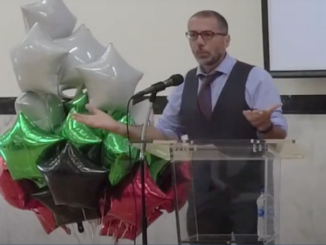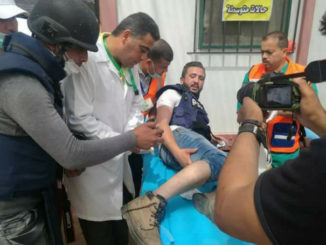
In this wide-ranging interview with Palestine Deep Dive, Palestinian academic, author and journalist Ramzy Baroud speaks about Maher al-Akhras, Palestinian prisoners, the Palestinian narrative and the challenge of overcoming media bias.
This urgent conversation focuses on the emergency situation of hunger-striking Palestinian prisoner Maher Al-Akhras described by B’Tselem on Monday as ‘on the verge of death’ as well as Ramzy’s latest book, These Chains Will Be Broken: Palestinian Stories of Struggles and Defiance in Israeli Prisons (Clarity Press, 2020).
Ramzy Baroud is a US-Palestinian journalist, media consultant, author, internationally-syndicated columnist, Editor of Palestine Chronicle (1999-present), former Managing Editor of London-based Middle East Eye, former Editor-in-Chief of The Brunei Times, former Deputy Managing Editor of Al Jazeera online.
He is the author of many books, his most recent is These Chains Will Be Broken: Palestinian Stories of Struggles and Defiance in Israeli Prisons (Clarity Press, 2020), which will be released in November in the UK. The book features a foreword by Palestinian member of the Palestinian Legislative Council, Khalida Jarrar, and an afterword by Richard Falk, former United Nations Special Rapporteur on the situation of human rights in the Palestinian Territories.
Having studied People’s History with Ilan Pappé for his Ph.D. at Exeter University, Ramzy recognizes the inherent value of the voices of every day and the oppressed, both as valuable sites of knowledge and for their ability to inspire others. In all his books, Ramzy looks to return the centrality of the Palestinian voice back to the heart of their struggle for liberation, giving Palestinians center stage to articulate their own discourse and reclaim the narrative from an Israeli perspective, back to a Palestinian one.
By giving up the stage to a variety of ‘everyday’ Palestinian voices, Ramzy chooses to minimize his own role as an author and instead amplify the stories of poor and working-class Palestinians in their own words, in turn bypassing elitist dialogue to create texts containing a variety of universally affecting stories, each a thread in the broader Palestinian narrative.
In Ramzy’s latest book, he trained Palestinian prisoners to tell their most compelling stories as if they were in their living room telling their children. And as Ramzy notes, the ‘prison’ he refers to is also very much a metaphor for the wider collective Palestinian experience.
Right now there are over 5000 Palestinian prisoners held in Israeli prisons, including over 150 children. Maher Al-Akhras has been in ‘administrative detention’ for more than 70 days where he is on hunger strike and is ‘on the verge of death’ according to Israeli rights group B’Tselem on Monday.
(Palestine Deep Dive)







